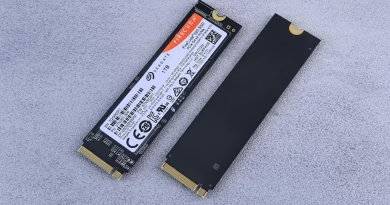The Rise of AI-Native Brands: What Happens When Your CEO Is a Chatbot?
Once upon a time, a startup founder would pitch their vision with a deck, a dream, and maybe a coffee-stained hoodie. Today? It might just be a chatbot with a name, a voice, and a LinkedIn profile.
Welcome to the age of AI-native brands—companies built entirely around or by artificial intelligence, often without a single human face at the front. Their CEOs are synthetic. Their customer service is fully autonomous. Their branding, content, and even strategy are AI-generated.
And no, this isn’t science fiction or some experimental art project. It’s happening right now.
From Co-Founder to Codebase
The shift toward AI-native brands started subtly. First came AI-generated ad creatives. Then product descriptions. Then influencer avatars and chatbot-based landing pages.
Now, we’re seeing companies—especially in the eCommerce and micro-SaaS space—launched and operated entirely by AI:
- AI agents write the copy, build the website, run marketing campaigns, and handle support.
- Founders simply prompt, tweak, and supervise.
- Some even assign AI personalities to key roles—like “Sophie, our Brand Director” or “Juno, our Head of Strategy,” all powered by GPT-based agents.
In some cases, these personalities are public-facing, with LinkedIn bios, Twitter accounts, and even podcast appearances (via ElevenLabs or similar voice synthesis tools).
It’s not just automation—it’s identity simulation.
Why Is This Happening?
There are three major forces driving the rise of AI-native brands:
- Speed & Cost
Launching a brand used to take months and a team. Now, solo founders—or even hobbyists—can go from idea to functioning business in a weekend using GPT-4o, Midjourney, Webflow, and Stripe. - Personality Sells
People engage with characters. AI personas like Lia from Character.ai or Aitana Lopez, the pink-haired Spanish AI influencer, have proven that synthetic identities can attract real fans—and real money. - Audience Tolerance Has Shifted
Consumers once demanded authenticity. Now, they care more about entertainment, value, and vibe. If the chatbot is witty, responsive, and helpful—does it matter if there’s no human behind it?
The Wildest Examples So Far
- Moxi, an AI-run fashion brand, lets an AI stylist answer queries and build outfits. It even suggests new product ideas based on user behavior—and creates concept art for the next drop.
- EchoReply, a fully autonomous micro-SaaS business support tool, has “Dax” as its virtual founder. Dax responds to emails, posts weekly updates on X, and hosts community chats—no humans in sight.
- SynthCo, a VC-funded experiment, is testing whether a full product company (hardware + software + marketing) can be AI-run with zero full-time staff. Early traction? Promising.
These aren’t gimmicks. They’re functioning operations—often leaner, faster, and more experimental than traditional startups.
But… Who’s Accountable?
Here’s where it gets murky.
- Who owns the mistakes when the AI makes a legal or ethical error?
- What happens when an AI-generated ad campaign goes viral for the wrong reason?
- If a customer is misled by an AI CEO, does that count as fraud—or fiction?
Regulators are already struggling with deepfakes and synthetic influencers. AI-native businesses, with no clear “founder” in control, could complicate liability, tax status, and consumer protection even further.
And there’s the issue of trust. While some consumers enjoy the novelty, others still expect to know who’s behind a product—especially when it comes to health, finance, or security.
What This Means for Human-Led Brands
AI-native brands raise a provocative question: If an AI can run a business and build a following, what role do human founders play now?
The answer, I think, isn’t extinction—it’s elevation.
Human-led brands will need to focus on:
- Storytelling that AI can’t mimic
- Ethics and values that build deeper trust
- Creative direction beyond prompts
- Community leadership with emotional intelligence
In short: brands with soul, not just speed.
AI will dominate efficiency. But humans still own meaning.
So… Will Your Next Favorite Brand Be Run by Code?
Probably.
But here’s the twist: you might not even notice. And maybe you won’t care.
As long as the product is great, the interaction smooth, and the identity engaging—we’re learning to accept that real doesn’t always mean better. We live in a world where we tip our AI waiters, follow AI influencers, and now, buy from AI-run stores.
So the next time a brand tweets you back in seconds with perfect tone and wit, ask yourself: Am I chatting with a founder? Or just a really clever frontend for a model named Carla?
Chances are, it’s the latter.




